Strategy
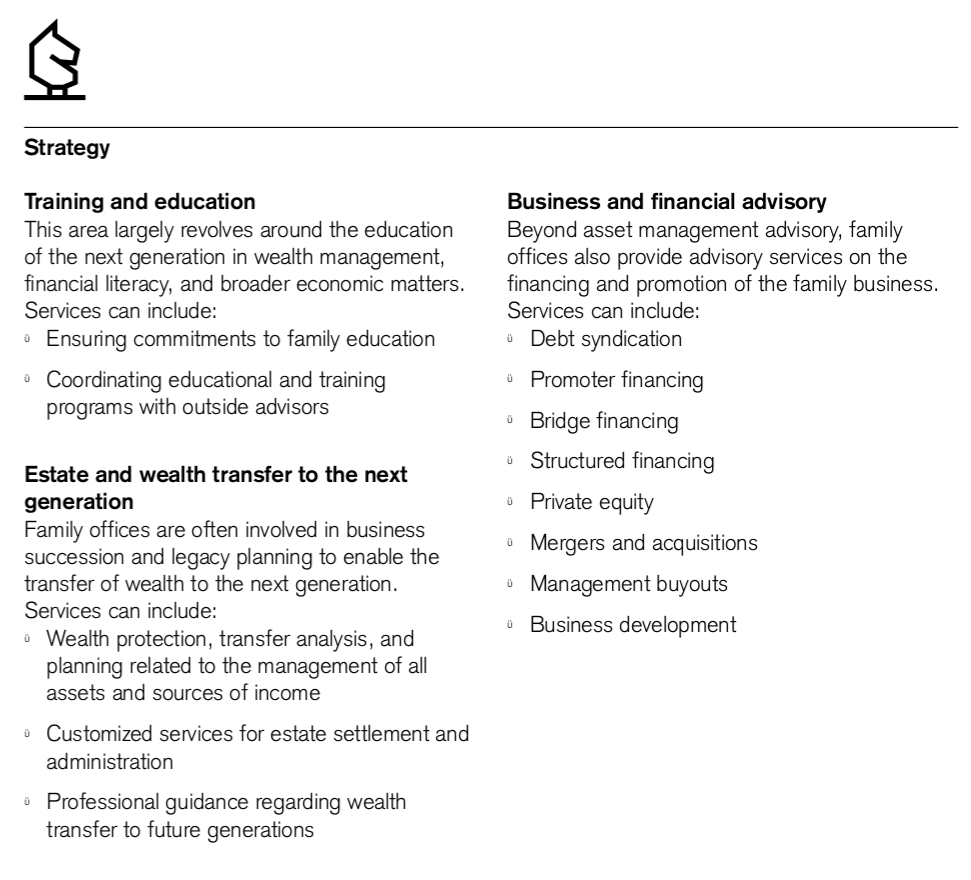

Financial Planning
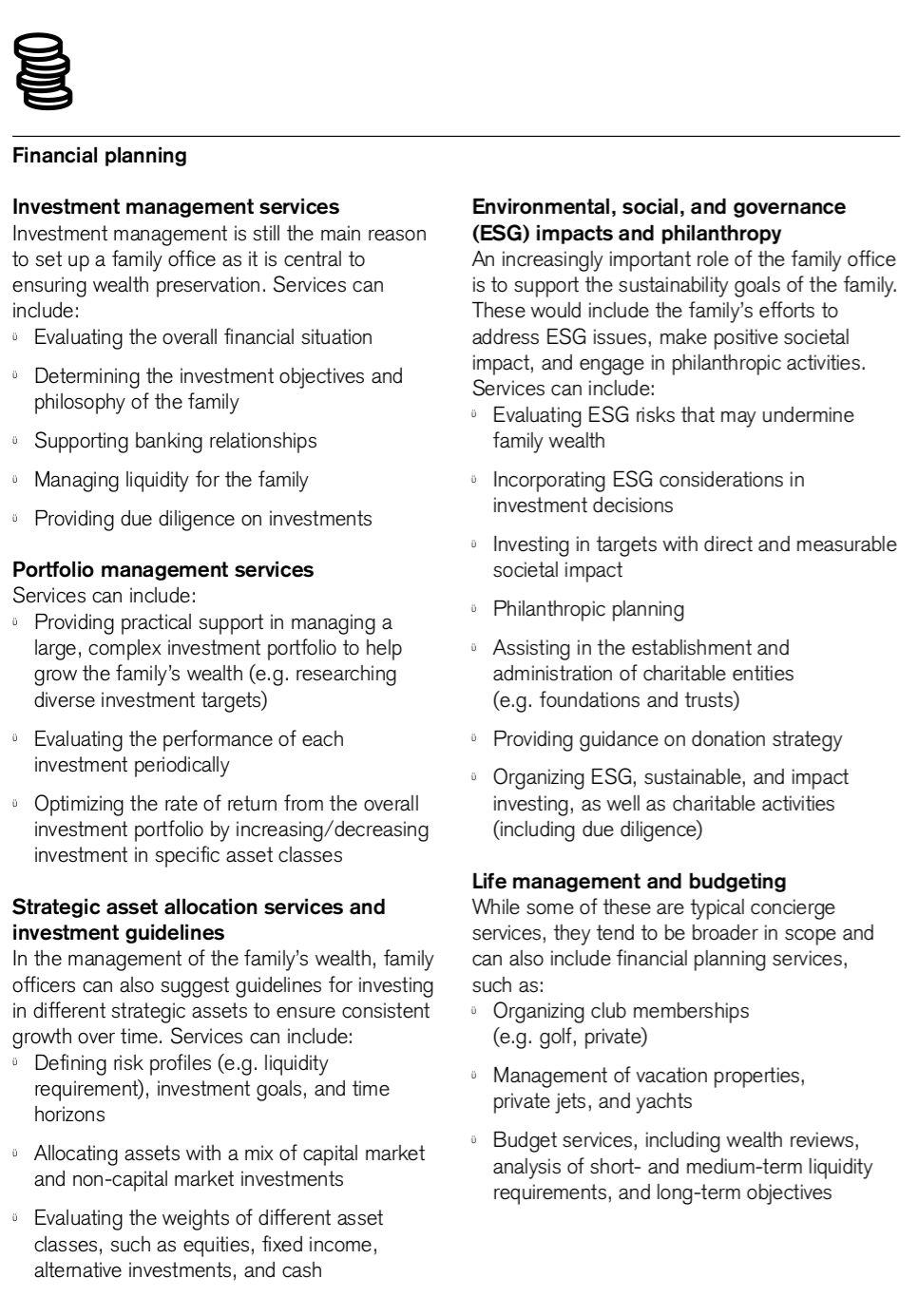

Governance
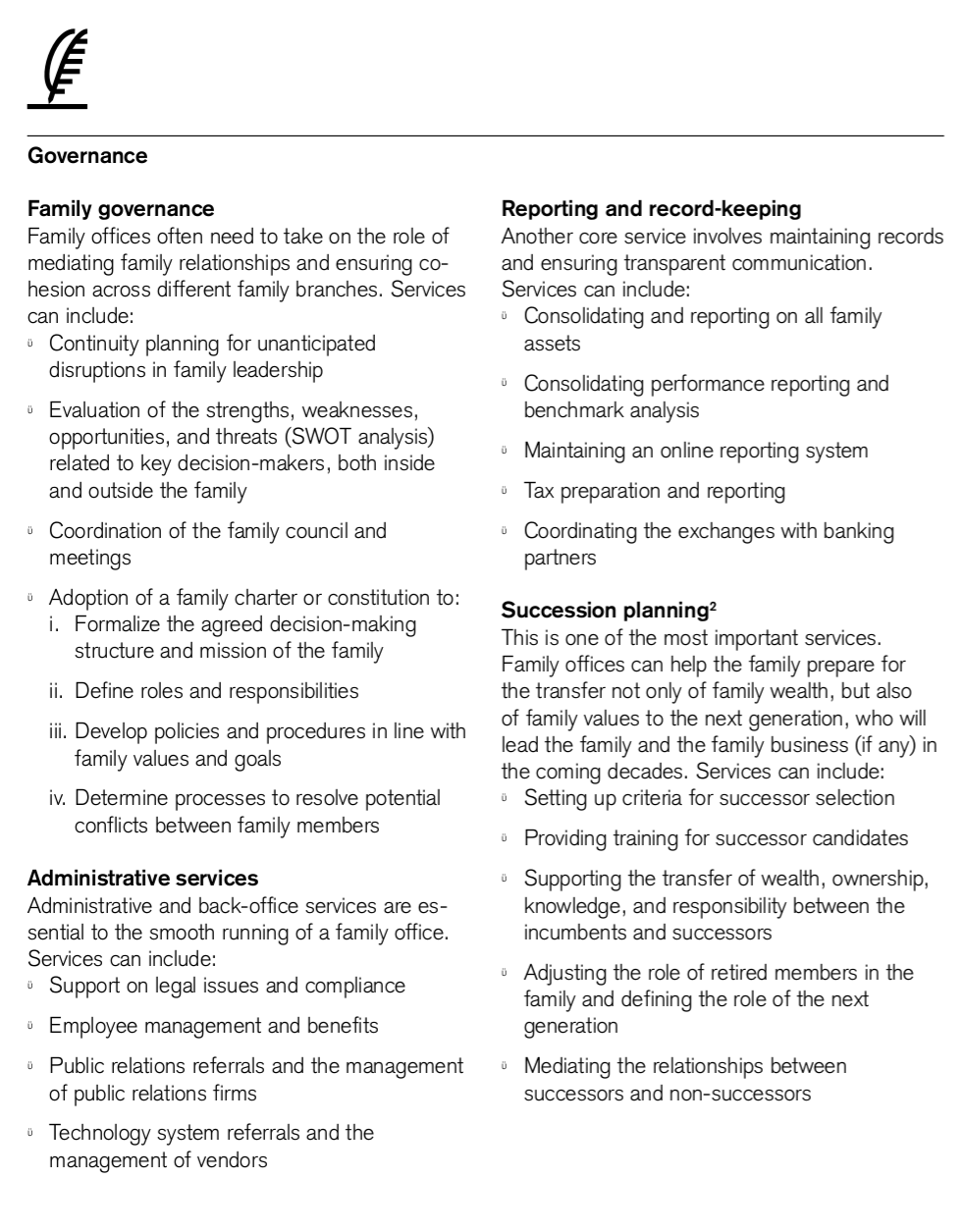

Advisory
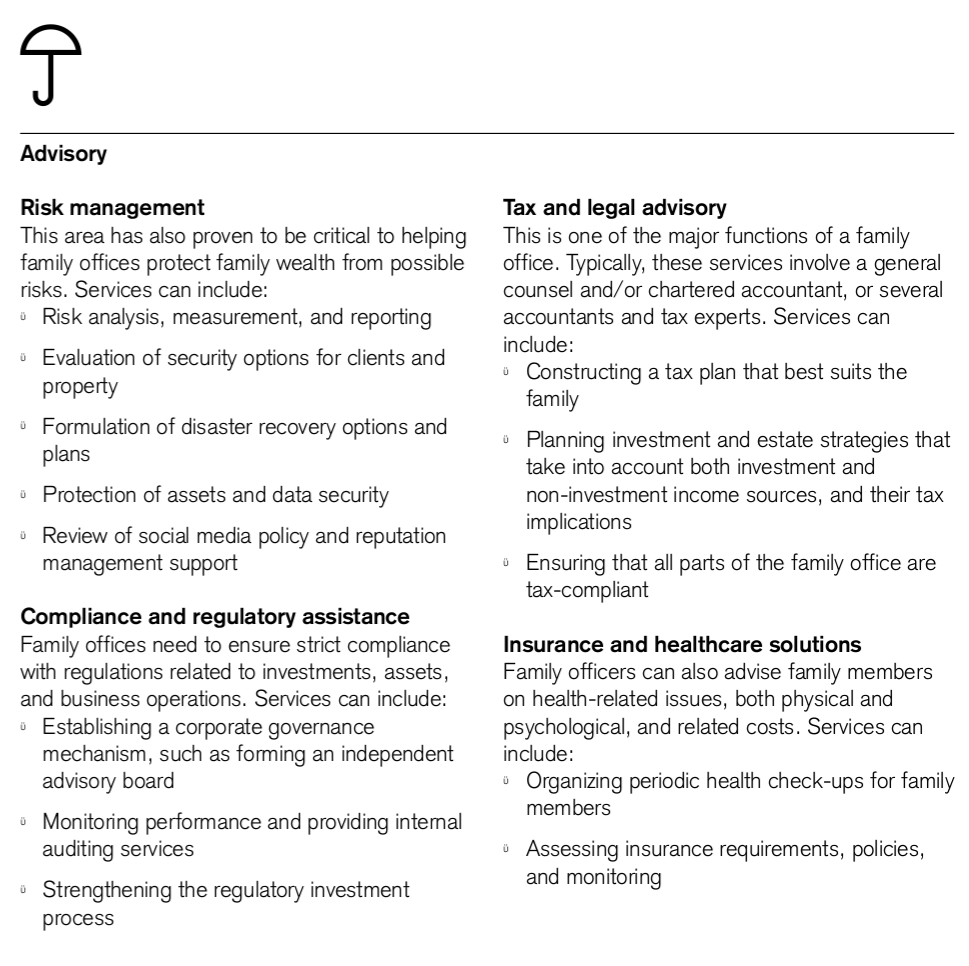

Setting up a Family Office
Why it makes sense
After identifying the three main types of family office and their potential services, a family can start to think about why setting up a family office could be the right decision.
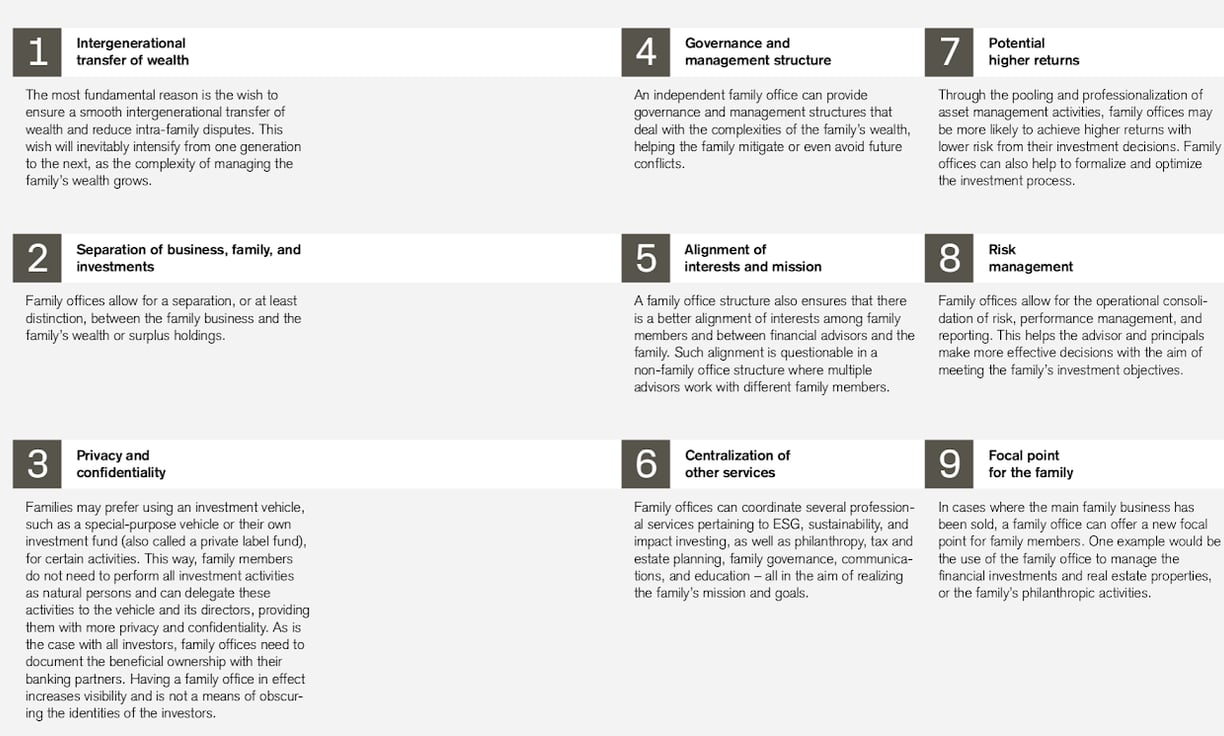

The Impact of Juridiction
Asking the right questions about location
In the end, the most crucial aspect in choosing a family office location may not only be the legal and tax environment, but also the jurisdictions (based on the migration of family members). Finding the location that is most suitable will depend on a thorough analysis of needs and scope.
The legal set-up
It is vital to understand how the jurisdiction can shape the business environment. Internationally active families may need to consider not only the country in which the office will be based, but also the exact location. This is because in certain countries, such as the US and Switzerland, the tax, legal, and judicial structures vary greatly by state (or canton).
As a starting point, it is helpful to establish if the family office will:
Own the family wealth
Administer the family wealth by acting on behalf of family members, or
Only advise family members on their joint investments and possibly other areas
Depending on the framework provided by the jurisdiction, other aspects should be considered to optimize the individual situation within the given legal, tax, and regulatory framework.
Changing global tax laws are already a concern, according to a survey of family offices: 29% of family officers cite them as a key challenge in the coming year.
Structure
The structure refers to the kind of entity that will house the family office and ownership, both in the present and in future generations (assuming the office intends to support more than the first generation). If the family office is linked to a family business, clarity will be needed to determine if it will support the business, which may allow for the deduction of certain expenses against business income.
As different structures are subject to different tax and regulations, it is essential for the family to understand the potential consequences of this decision. In light of the more global orientation of families and investments today, the chosen location and structure need to be flexible yet also maintain the benefits of a traditional, centralized family office.
It is helpful for the family to gather the following information:
Location of each family member and presence in multiple jurisdictions
Future migration and travel plans
Location of substantial family wealth
Future investment plans and goals in other jurisdictions
Locations where family members are subject to various taxes
Criteria
Based on the diverse global interests of the family, the next step would be to investigate and weigh the particular benefits and drawbacks of various structures and jurisdictions. While the analysis will be unique for each family, the following items should be reviewed in each potential jurisdiction:
Legal structures available
Tax implications of structure
Ease of hiring and retaining employees
Cost of operation versus value received
Ability to invest and manage the assets of a
global family
Risks, reputation, and volatility in light of economic and political climates
Regulatory and informational filing requirements
Immigration/visa requirements for family members
Ability to efficiently coordinate with advisors in other jurisdictions
Quality of communication and relationships with tax and regulatory authorities
Streamlined exchange of information
Flexibility to restructure in the future, including migration
Opportunities for succession
Services
Principal activity is single/multiple family offices activities (e.g. managing investments and trusts for a single or multiple families)
Trade
Company
topmail@global-grd-management.top
© 2024. All rights reserved.
